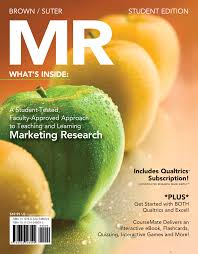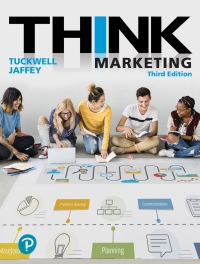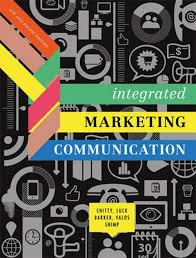Description
Test Bank For ABC’s Of Relationship Selling Through Service 13th Edition, Charles Futrell, Raj Agnihotri, Mike Krush, ISBN 10: 1260169820, ISBN 13: 9781260169829
ABC’s of Relationship Selling, 13e (Futrell)
Chapter 2 Ethics First . . . then Customer Relationships
1) The ethical behavior of an employee is influenced by managers, co-workers, and the organization.
Answer: TRUE
Explanation: The ethical behavior of individual employees is influenced by the organization and by other people, such as co-workers and managers. Top management plays a significant role in the ethical decisions made by employees.
Difficulty: 1 Easy
Topic: What Influences Ethical Behavior?
Learning Objective: 02-01 Explain what influences ethical behavior.
Bloom’s: Remember
AACSB: Ethics
Accessibility: Keyboard Navigation
2) The world views and belief systems of employees from the same country are typically identical.
Answer: FALSE
Explanation: No two people are alike because of varying personalities, religious backgrounds, and family and personal experiences. Even people from the same culture will have different ideas of right and wrong.
Difficulty: 1 Easy
Topic: What Influences Ethical Behavior?
Learning Objective: 02-01 Explain what influences ethical behavior.
Bloom’s: Remember
AACSB: Ethics
Accessibility: Keyboard Navigation
3) An individual in the pre-conventional stage of morality asks, “What can I get away with?”
Answer: TRUE
Explanation: At the pre-conventional moral development level, an individual acts in his or her own best interest and thus follows rules to avoid punishment or receive rewards. This individual would break moral and legal laws.
Difficulty: 1 Easy
Topic: What Influences Ethical Behavior?
Learning Objective: 02-01 Explain what influences ethical behavior.
Bloom’s: Remember
AACSB: Ethics
Accessibility: Keyboard Navigation
4) Individuals at the principled moral level base ethical decisions on laws and consequences.
Answer: FALSE
Explanation: At the principled moral development level, an individual lives by an internal set of morals, values, and ethics and would disobey laws to follow what he or she believes is right. At the conventional moral development level, an individual conforms to the expectations of others and legal laws.
Difficulty: 2 Medium
Topic: What Influences Ethical Behavior?
Learning Objective: 02-01 Explain what influences ethical behavior.
Bloom’s: Understand
AACSB: Ethics
Accessibility: Keyboard Navigation
5) Most sales people operate at the conventional level of moral development.
Answer: TRUE
Explanation: The majority of sales personnel, as well as people in general, operate at the conventional level. However, a few individuals are at level 1, and it is estimated that less than 20 percent of individuals reach level 3.
Difficulty: 1 Easy
Topic: What Influences Ethical Behavior?
Learning Objective: 02-01 Explain what influences ethical behavior.
Bloom’s: Remember
AACSB: Ethics
Accessibility: Keyboard Navigation
6) Sales representatives at the preconventional moral development level would most likely be unconcerned about lying to customers if getting caught was unlikely.
Answer: TRUE
Explanation: Individuals at the preconventional moral development stage break moral and legal laws when they can get away with it. So, they probably would feel no concern about lying to a customer.
Difficulty: 2 Medium
Topic: What Influences Ethical Behavior?
Learning Objective: 02-01 Explain what influences ethical behavior.
Bloom’s: Understand
AACSB: Ethics
Accessibility: Keyboard Navigation
7) Morals refer to people’s adherence to right or wrong behavior and right or wrong thinking.
Answer: TRUE
Explanation: People’s morals are their adherence to right or wrong behavior and right or wrong thinking. As one thinks, one does.
Difficulty: 1 Easy
Topic: What Influences Ethical Behavior?
Learning Objective: 02-01 Explain what influences ethical behavior.
Bloom’s: Remember
AACSB: Ethics
Accessibility: Keyboard Navigation
8) At the preconventional moral development level, an individual conforms to the expectations of others.
Answer: FALSE
Explanation: Individuals at the preconventional moral development stage break moral and legal laws when they can get away with them, no matter what others expect. Those at the conventional level conform to expectations and maintain laws.
Difficulty: 2 Medium
Topic: What Influences Ethical Behavior?
Learning Objective: 02-01 Explain what influences ethical behavior.
Bloom’s: Understand
AACSB: Ethics
Accessibility: Keyboard Navigation
9) Based on levels of moral development, a professional salesperson is in the minority among sales personnel.
Answer: TRUE
Explanation: The majority of sales personnel, as well as people in general, operate at the conventional level. However, a few individuals are at level 1, and it is estimated that less than 20 percent of individuals reach level 3. Truly professional salespeople are in level 3, which is a minority.
Difficulty: 1 Easy
Topic: What Influences Ethical Behavior?
Learning Objective: 02-01 Explain what influences ethical behavior.
Bloom’s: Remember
AACSB: Ethics
Accessibility: Keyboard Navigation
10) The Core Principles of Professional Selling require people whose personal character is at level 2.
Answer: FALSE
Explanation: Professional salespeople are in Level 3, which involves making ethical and moral decisions as all costs. The salesperson does what is right not what is in his or her best interest.
Difficulty: 2 Medium
Topic: What Influences Ethical Behavior?
Learning Objective: 02-01 Explain what influences ethical behavior.
Bloom’s: Understand
AACSB: Ethics
Accessibility: Keyboard Navigation
11) A fixed point of reference must be separate from you.
Answer: TRUE
Explanation: A fixed point of reference refers to something that provides the correct action to take in any situation and never gets tailored to fit an occasion. This fixed point of reference must be separate from you; otherwise you will be changing the rules based upon your best interest in various situations.
Difficulty: 2 Medium
Topic: Are there Any Ethical Guidelines?
Learning Objective: 02-01 Explain what influences ethical behavior.
Bloom’s: Understand
AACSB: Ethics
Accessibility: Keyboard Navigation
12) Multiple world religions adhere to the Core Principles.
Answer: TRUE
Explanation: Christians, Jews, Hindus, Buddhists, and Confucius’ followers embrace the Core Principles, although each has its own interpretation.
Difficulty: 2 Medium
Topic: Are there Any Ethical Guidelines?
Learning Objective: 02-01 Explain what influences ethical behavior.
Bloom’s: Understand
AACSB: Ethics
Accessibility: Keyboard Navigation
13) Ethical behavior refers to conducting yourself in the proper manner and treating others fairly.
Answer: TRUE
Explanation: Ethical behavior involves treating others with fairness, being honest, and behaving in a proper manner.
Difficulty: 1 Easy
Topic: Management’s Ethical Responsibilities
Learning Objective: 02-02 Define management’s ethical responsibilities.
Bloom’s: Remember
AACSB: Ethics
Accessibility: Keyboard Navigation
14) An ethical dilemma arises in a situation when each alternative choice has some undesirable elements due to potentially negative ethical consequences.
Answer: TRUE
Explanation: Right and wrong are unclear in ethical dilemmas. Such situations are faced by managers regularly.
Difficulty: 1 Easy
Topic: Management’s Ethical Responsibilities
Learning Objective: 02-02 Define management’s ethical responsibilities.
Bloom’s: Remember
AACSB: Ethics
Accessibility: Keyboard Navigation
15) An ethical sales manager should set realistic and obtainable goals.
Answer: TRUE
Explanation: Realistic and obtainable goals eliminate excess pressure on salespeople to behave unethically. Pressure motivates salespeople, but managers must set reasonable ones to avoid unethical actions.
Difficulty: 1 Easy
Topic: Ethics in Dealing with Salespeople
Learning Objective: 02-03 Discuss ethical dealings among salespeople; employers; and customers.
Bloom’s: Remember
AACSB: Ethics
Accessibility: Keyboard Navigation





Be the first to review “Test Bank For ABC’s of Relationship Selling through Service 13th Edition Charles Futrell”